

.jpg)
The 4th Spanish Bioethics Conference will give a Christian perspective on creation care, life and death, and AI. “Bioethics is not primarily a theoretical issue to be considered at a university classroom, but a practical reality in everyday life”.

The recently released State of Theology survey states that “Americans often aren’t sure how to balance hot-button cultural issues with theological beliefs”.
.jpg)
The 12th March for Life in Switzerland had a festive mood, with live music, testimonies, and a call to implement a 24 hours period of reflection before performing an abortion.
.jpg)
In recent Marches For Life, Christian organisations have suffered attacks and threats. The Evangelical Alliance says the “democratic heritage of Switzerland” must be protected.

This year the theme of the march was '10 million too many', a reference to the number of abortions carried out in the UK since the approval of the Abortion Act in 1967.
.jpg)
Around 15,000 joined the march organised by evangelical groups. They asked to protect children from gender ideology initiatives in schools.
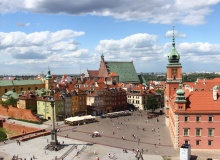
There were 107 legal abortions in 2021, 90% less than the previous year. “The biggest problem now is illegal abortions using pills”, pro-life groups warn.
.jpg)
A majority of parliamentarians in Strasbourg passes a non-binding resolution that “strongly” condemns the Supreme Court decision of the United States.

Is it possible to change the tone of the debate? Is it possible to speak up on abortion in a way that will increase support for both the woman and baby?
.jpg)
Pro-life groups in Europe follow with attention the situation in the US after the decision that reversed “Roe v Wade”. Small organisations network to support women holistically.
.jpg)
Abortion is no longer a right on a national level and every state will have to decide. Both pro-life and pro-abortion movements mobilise for a fight that will continue on a state-by-state level.

Official data show that 53% were fully performed at home. The government is planning to make those abortions permanent, like in England and Wales.
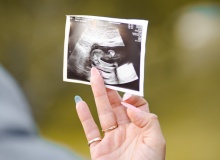
Among the changes, which will cost the state 104 million euros, it will allow minors aged 16 and 17 to carry out abortions without authorisation.

It is the lowest figure since official statistics were first collected in 1996. Unlike other countries, the pandemic has not increased the number of terminations.

The amendment that allows to take all abortion pills at home within the first 10 weeks passed by 215 votes to 188. “It will have dire consequences for women”, evangelicals say.
.jpg)
Alejandro Giammattei, President of Guatemala: “This is a day to celebrate that we have a country that learns, teaches and does everything possible to respect life from conception to natural death".
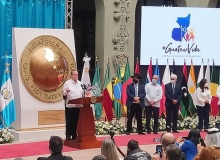
The Guatemalan government celebrates a solemn act in the National Palace for the declaration of the country as Pro-Life Capital, with national and Latin American leaders.
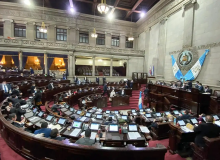
The Law for the Protection of Life and the Family passed with 101 votes in favour, 51 abstentions and 8 against. Evangelicals presented 100,000 signatures requesting the approval.

Guatemalan Foreign Affairs Minister Mario Adolfo Búcaro talks about the country's declaration as the Latin American pro-life capital, and its policies in defence of the unborn.
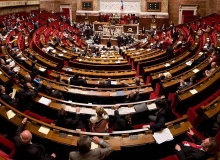
The new law also allows midwives to perform instrumental abortions. “It is a sad decision, adopted despite the warnings of doctors and gynaecologists”, say evangelicals.
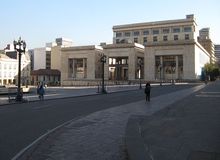
The ruling of the Constitutional Court came during an extraordinary session marked by a pro-life rally under the motto “the silence of the innocents”.

On 9 March, the Guatemalan government will celebrate the first National Day of Life. The inauguration of the monument will be attended by the country’s President and other Latin American officials.
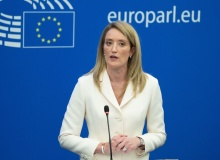
Despite her past stand against abortion, Roberta Metsola told reporters after being elected that her position on abortion will be “that of the European Parliament”.

A survey concludes that 9 in 10 attend their church’s worship service every week. 63% of respondents do volunteer work and 40% identify with right-wing parties.
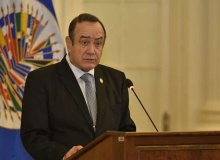
The Guatemalan President announced that the declaration will take place on 9 March 2022, with a message of respect for life from conception.

Las opiniones vertidas por nuestros colaboradores se realizan a nivel personal, pudiendo coincidir o no con la postura de la dirección de Protestante Digital.